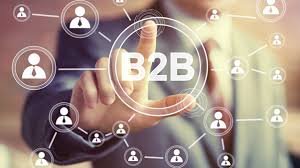Strategies for B2B Digital Marketing Agencies focus on tailored solutions, data-driven decisions, and building strong client relationships to thrive in a competitive market. Here’s an overview of the impacts, key components, best practices, and conclusion related to the strategies for B2B Digital Marketing Agencies.
Impacts of B2B Digital Marketing Strategies
- Enhanced Lead Generation: B2B digital marketing significantly improves lead generation by targeting specific audiences with tailored content. This results in higher quality leads, which are more likely to convert into sales.
- Improved Customer Relationships: Through personalized and data-driven campaigns, B2B companies can foster stronger relationships with their clients. Engaging content, such as whitepapers and webinars, helps position a company as a thought leader, building trust over time.
- Increased Brand Visibility and Authority: Effective digital marketing boosts a company’s online presence, making it easier for potential clients to find them. SEO, content marketing, and social media contribute to establishing a brand as an industry authority.
- Cost-Effective Marketing: Compared to traditional marketing methods, digital strategies are often more cost-effective, offering better ROI. They allow for more precise targeting and measurement of results, leading to more efficient allocation of resources.
- Data-Driven Decision Making: Digital marketing provides access to detailed analytics, enabling agencies to make informed decisions. This data helps in refining strategies, improving campaign performance, and understanding client behavior.
Key Components of B2B Digital Marketing
- Content Marketing: Central to B2B digital strategies, content marketing involves creating valuable, relevant content that addresses the pain points of target audiences. This can include blog posts, whitepapers, case studies, and eBooks that educate and inform.
- Search Engine Optimization (SEO): SEO is crucial for improving the visibility of a company’s content. By optimizing for keywords relevant to the industry, businesses can attract more organic traffic from search engines.
- Email Marketing: Despite being one of the older digital marketing methods, email remains highly effective in B2B contexts. It allows for personalized communication, nurturing leads through tailored content, and maintaining engagement with existing clients.
- Social Media Marketing: Platforms like LinkedIn, Twitter, and even niche forums are vital for B2B marketing. They allow companies to engage directly with their audience, share industry insights, and promote content that drives traffic to their websites.
- Paid Advertising (PPC): Paid campaigns, such as Google Ads and LinkedIn Ads, are important for reaching a targeted audience quickly. They can drive traffic, generate leads, and complement organic efforts, especially for new or time-sensitive campaigns.
- Analytics and Reporting: Continuous monitoring and reporting are essential for measuring the success of digital marketing strategies. Tools like Google Analytics and HubSpot allow agencies to track performance, identify trends, and adjust strategies in real-time.
Best Practices for B2B Digital Marketing Agencies
- Understand Your Buyer Persona: Deeply understanding the target audience, including their pain points, goals, and decision-making processes, is critical. This ensures that all marketing efforts are tailored to meet the specific needs of the intended audience.
- Focus on Long-Term Relationships: B2B transactions often involve long sales cycles. Building and nurturing long-term relationships through consistent, value-driven communication is essential for success.
- Leverage Automation: Marketing automation tools can streamline tasks like email campaigns, social media posting, and lead scoring. This allows for more efficient use of resources and ensures that prospects are engaged at the right time.
- Create Multi-Touchpoint Campaigns: Engaging prospects across multiple channels (email, social media, PPC, content) increases the chances of conversion. A cohesive strategy that ties these touchpoints together is crucial for a seamless customer journey.
- Measure and Adapt: Regularly review the performance of marketing campaigns. Use data to identify what’s working and what isn’t, and be ready to pivot strategies to maximize effectiveness.
Conclusion
The success of a B2B digital marketing agency hinges on its ability to craft and execute strategies that resonate with business clients. By focusing on key components such as content marketing, SEO, and analytics, and adhering to best practices like understanding buyer personas and leveraging automation, agencies can deliver measurable results that drive business growth. In an ever-evolving digital landscape, the ability to adapt and innovate is what ultimately sets successful agencies apart.
